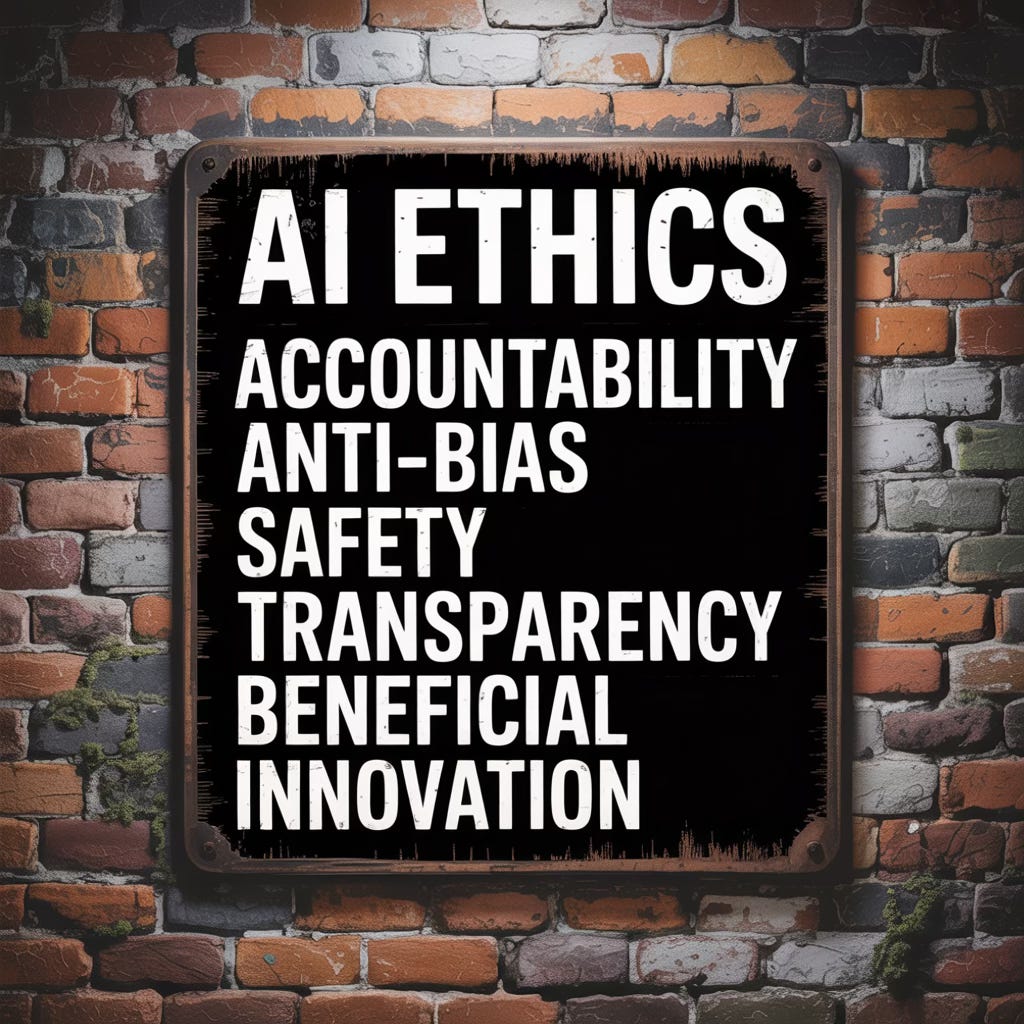I attended and spoke at the “AI for Good” — Los Angeles event — on Wednesday, July 9th, where professionals from the tech industry, entertainment, and other sectors came together to discuss the promise and challenges of artificial intelligence. One topic that surfaced repeatedly—but often without clarity—was AI ethics. While the expert speakers largely focused on technical, market and funding issues related AI, many attendees outside the tech world seemed unfamiliar with what AI ethics really means. This blog post is intended to bridge that gap, offering a simple, accessible overview of key ethical principles in AI for both technical and non-technical audiences.
AI systems must be developed with human oversight and clear accountability. They should actively avoid unfair bias, ensure safety and reliability, and provide transparency about how they work. All AI innovation should be guided by these principles to promote fairness, minimize harm, and benefit society.
Accountability. AI systems must be designed and operated with clear lines of responsibility. Human oversight and control should be maintained at all times to ensure that decisions made by AI can be traced, audited, and held to ethical and legal standards.
Anti-Bias. AI algorithms and training data can perpetuate or reduce bias. Developers must actively work to identify, mitigate, and eliminate unjust or discriminatory outcomes. AI systems should be designed to differentiate between fair and unfair biases, minimizing harm and promoting fairness.
Safety. AI systems must be safe, secure, and reliable. They should include fallback mechanisms to prevent or minimize unintended consequences. Accuracy, consistency, and reproducibility are essential to maintaining trust and preventing harm.
Transparency. Developers and organizations using AI must provide clear, accessible information about how AI systems are trained, how they function, and how they impact users. This includes transparency about data sources, algorithmic logic, and user-related implications—ensuring individuals understand how AI influences their experiences.
Beneficial Innovation. Organizations developing AI must commit to using these technologies for the public good. New AI applications should be guided by these ethical principles, aiming to address real-world challenges while protecting human rights and societal well-being.
High-Profile AI Ethics Failures
Some well-known cases where companies fell short of AI ethical standards include:
Amazon: Shut down an AI hiring tool after it was found to discriminate against women, highlighting bias in training data.
Clearview AI: Collected billions of facial images without consent, raising major privacy and accountability concerns.
Facebook (Meta): Algorithms amplified harmful content for engagement, revealing a lack of transparency and regard for user safety.
Google:
Fired AI ethics researchers after they raised concerns about large language models, prompting criticism over internal accountability.
Google Bard’s initial image generator was paused after over-correcting for diversity by producing historically inaccurate depictions (Nazi soldiers, Vikings, and U.S. Founding Fathers shown as people of color) and rejecting prompts featuring white individuals, leading to accusations of anti-white bias and a shift to Gemini.
Tesla: Faced scrutiny for overstating the capabilities of its Autopilot system, leading to safety concerns and accidents.
Measures to Ensure Ethical AI
To ensure adherence to AI ethical protocols, tech companies must integrate ethics into every stage of development—from data collection to deployment. This includes conducting bias audits, ensuring transparency in algorithms and decision-making, involving diverse teams in design and testing, and establishing clear accountability for outcomes. Companies should also adopt industry standards, support independent oversight, and provide mechanisms for user feedback and redress. Ethical practices must be embedded into corporate governance, not treated as afterthoughts or PR strategies.
Conclusion
As AI technologies continue to shape our world, the need for ethical guidance has never been more urgent. By understanding and applying core principles—like accountability, fairness, safety, transparency, and a commitment to public good—we can ensure that AI benefits society as a whole. Whether you're building AI systems or simply impacted by them, ethical awareness is essential. The goal isn't just smarter technology, but more responsible innovation.



